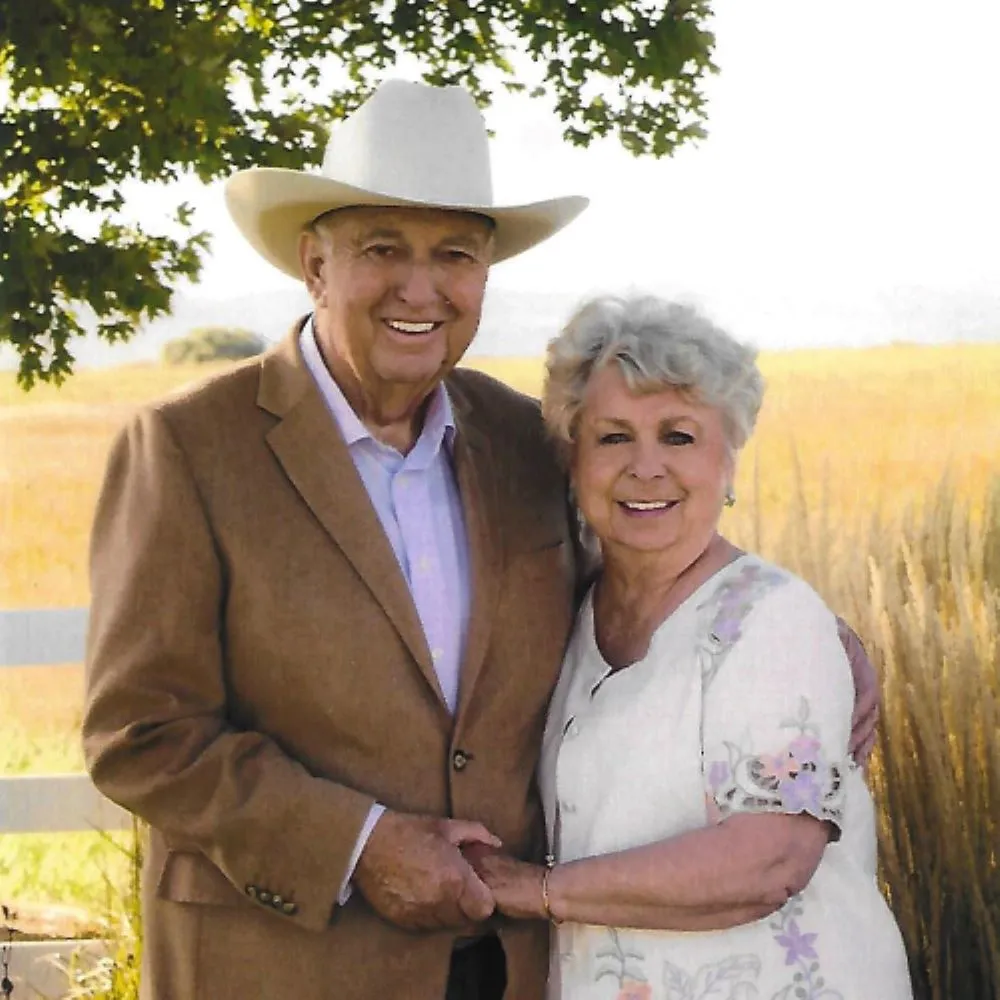BizWest celebrates 40 years covering business and recognizes 40 iconic leaders who inspired the region’s development.

View related stories:
Click here to view the 40th Anniversary supplement.
‘Turnpike’ helps define how economy has changed
SPONSORED CONTENT

George Berg and Giovanni Ruscitti
George Berg and Giovanni Ruscitti, along with Rick Greenleaf and David Hill, founded Berg Hill Greenleaf Ruscitti LLP in 2001 and have spent the last two decades building their law firm into one of the Boulder area’s largest private practices.
With more than three dozen lawyers and offices in Boulder; Denver; Cheyenne; San Diego and Irvine, California, offers legal services from criminal representation to advice on mergers and acquisitions.
With more than four decades of legal experience, Berg’s specialties include commercial and real estate law.
“We like to think of ourselves as being strategic partners with our clientele,” Berg told BizWest in a 2018 interview. “As they grew and had a need for diversified services, we’ve focused on providing those services so they didn’t need to go to another law firm or source.”
Ruscitti’s practice often focuses on complex business litigation, mergers and acquisitions, and real estate deals.
With 25 years of experience in the construction, mining, power and energy-related matters, he represents owners, developers, general contractors, subcontractors, suppliers, insurers and sureties. Ruscitti, who was named of the 30 Most-Influential Business Leaders in 2022 by BizWest, has negotiated and drafted design-build projects up to $2.2 billion in value.
This year, Ruscitti expanded his resume to include the job title author, publishing “Cobblestones, Conversations, and Corks: A Son’s Discovery of His Italian Heritage,” an ode to his family and its immigrant roots in Cansano, Italy.

Steve Bosley and Cliff Bosley
If there was a royal family of the Boulder running scene, it’d be the Bosleys.
In 1979, patriarch Steve Bosley, then president of the Bank of Boulder, was approached by Olympic gold medalist Frank Shorter about hosting a road race in Boulder. Thus, the Bolder Boulder 10K running race was born.
More than four decades laters, Bolder Boulder is still going strong, attracting upwards of 50,000 racers every Memorial Day.
Cliff Bosley, Steve’s son, is the race director, a role he’s held since 1998.
Bosley, a 2019 Running USA Hall of Champions inductee, ran the first Bolder Boulder in 1979 when he was 12 years old.
Steve Bosley served as referee for the men’s and women’s marathons during the 1996 Summer Olympic Games in Atlanta, spent 12 years on the University of Colorado’s elected board of regents, and was honored with the University of Colorado Leeds School of Business Alumni Lifetime Service Award in 2017 and the Boulder Chamber Esprit Entrepreneur lifetime achievement award in 2021.
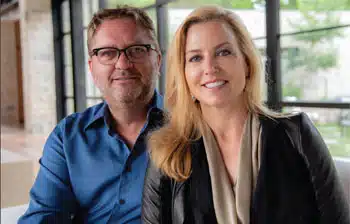
Dan and Cindy Caruso
Dan Caruso certainly ranks among the top entrepreneurs to ever have created economic opportunity in Boulder and, for that matter, for companies around the world that have used the communications technology that his company enabled.
He created and led Zayo Group Holdings Inc. (NYSE: ZAYO) into an $8.3 billion company traded on the New York Stock Exchange. He sold the company for $14.3 billion in 2019 in a go-private deal.
Zayo has created a worldwide fiber optic network that connects business centers around the globe and enables the digital communications that drive modern business.
He now operates Caruso Ventures with his wife, Cindy. The new venture manages their investment portfolio, family office and not-for-profit activities, according to his LinkedIn profile.
Prior to founding Zayo, he was a co-founder of Level 3 Communications Inc. and later he joined Metropolitan Fiber Systems.
He’s a recognized supporter of entrepreneurship, and won the 2017 Entrepreneur of the Year Award in 2017 from the Boulder Chamber. He serves as chairman of the board for Endeavor Colorado and is on the boards of Colorado Thrives, University of Chicago’s Polsky Center and CU Boulder’s Chancellor Strategic Advisory Council, according to LinkedIn.
The Caruso Foundation supports initiatives in entrepreneurship, innovation and inclusion.
He has an MBA from the University of Chicago and a bachelor’s in mechanical engineering from the University of Illinois.

Marvin Caruthers
Life sciences has garnered enormous attention in the Boulder Valley recently, but the sector would not be where it is today without the vision of Marvin Caruthers.
Caruthers, a University of Colorado Boulder distinguished professor of biochemistry, has formed numerous biotechnology companies, including Genomica Corp., which was bought in 2001 by San Francisco-based Exelixis Inc.; Thousand Oaks, Calif.-based Amgen Inc.; and Foster City, Calif.-based Applied Biosystems Inc.
He’s also known for helping form NeXstar Pharmaceuticals Inc., which was acquired by Foster City, Calif.-based Gilead Sciences Inc.; Ribozyme Pharmaceuticals Inc.; as well as Boulder-based Array Biopharma Inc., among others.
Caruthers was awarded a 2003 Esprit Entrepreneur Lifetime Achievement award, and was inducted into the National Inventors Hall of Fame in 2018. He also keeps his hand in many of the other companies he helped start.
Many of those companies were in collaboration with Kyle Lefkoff. When Lefkoff started Boulder Ventures Ltd. in 1995, Caruthers became a founding investor and a founding member of the company’s investment committee.
Besides all his biotech endeavors, he and his late wife, Jennie, created the Caruthers Family Foundation, which focuses on helping impoverished children get medical and dental care.
He also donated $20 million to the University of Colorado to help construct the Jennie Smoly Caruthers Biotechnology Building, an interdisciplinary biotechnology building that houses the BioFrontiers Institute. The donation was the largest by a faculty member and one of the largest in the school’s history.

Tom Cech
Simply put, Tom Cech changed the world. As a researcher at the University of Colorado Boulder in 1989, his team’s research into RNA found that RNA in living cells is not only a molecule that encodes information but can also function as a catalyst and participate in cellular reactions.
This discovery was one of the most pivotal in the history of biochemistry and genomics. It opened the door for further understanding of RNA’s role in biology and set the stage for subsequent developments such as CRISPR gene editing.
That earned Cech and colleague Sidney Altman the 1989 Nobel Prize for Chemistry. Cech became the first CU Boulder faculty member to receive the Nobel Prize.
Since then Cech, a Chicago native who did his undergraduate studies at Grinnell College, Ph.D. at the University of California Berkeley and his postdoctorate at MIT, has continued his genomics research at CU Boulder’s Biofrontiers Institute and the Cech Lab, where he also serves as a mentor to students. He also taught general chemistry to freshmen.
In addition to the Nobel Prize, Cech was elected to the National Academy of Sciences in 1987 and won the National Medal of Science in 1995.

Frank and Gina Day
Frank Day and Gina Day, the husband and wife duo who operate Concept Restaurants alongside his wife, have been active in the hospitality scene in Boulder and beyond for decades.
Among the groups they’ve owned or helped start are Rock Bottom Restaurants Inc., Old Chicago, Walnut Brewery and the ChopHouse & Brewery; Colorado’s first microbrewery, Boulder Beer; iconic Boulder watering hole The Walrus; upscale lodges Hotel Boulderado and the Table Mountain Inn in Golden; Downtown Boulder Inc., a nonprofit organization focused on promoting downtown Boulder; and the Day Family Foundation.
Frank Day is a 2003 Boulder County Business Hall of Fame inductee and was named an Entrepreneurial Innovator in 2004 by the Boulder Chamber. Gina Day is a 2018 Boulder County Business Hall of Fame inductee.

Steve Demos
Steve Demos traces his entrepreneurial efforts back decades, and the impact of his efforts are destined to last decades into the future.
Demos founded WhiteWave Foods in 1977, offering a variety of soy-based products, eventually producing Silk, a refrigerated soymilk sold alongside dairy products. The U.S. Food and Drug Administration in 1998 permitted a health claim that soy protein helps reduce the risk of heart disease, helping to propel sales of soy-based products.
Silk helped propel the company’s sales and helped attract an investment from Dean Foods in 1999. Dean eventually purchased WhiteWave in 2002 before spinning it off as a public company in 2013.
But that wasn’t the end for WhiteWave’s M&A activity, with Danone S.A. acquiring the company for $12.5 billion in 2017.
Demos followed up on his WhiteWave success by co-founding NextFoods Inc., the parent company for GoodBelly Probiotics, in 2006.
“NextFoods adheres to a mission of ‘Right Livelihood,’ which fosters the continuous improvement of human nutrition while demonstrating the values for responsible and conscious capitalism,” the company said in a recent press release. “The team at NextFoods is comprised of seasoned and passionate industry pros committed to developing a series of world-class, highly nutritious, functional, ‘next generation’ foods while using sustainable, socially responsible organic practices whenever possible.”
Demos received the Boulder Chamber’s Esprit Entrepreneur award in 1996 and Naturally Boulder’s Lifetime Achievement Award in 2010.
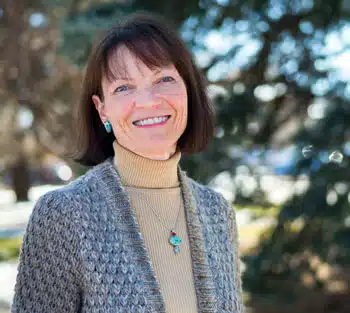
Frances Draper
University of Colorado Boulder Chancellor Phil DiStefano described the late Frances Draper as one who “strengthened the ‘town-and-gown’ relationship between the city of Boulder and the university. Frances had a way of working across different groups and always signaling that this could be a win-win” – or in Draper’s own words, “There’s a pony in here for everyone.”
Draper, who died at age 65 on Sept. 1, 2021, after a long battle with cancer, joined CU Boulder as vice chancellor for strategic communications, then became its senior strategic advisor. She was instrumental in developing the university’s plan for the 308-acre CU Boulder South tract and navigating the controversy over flood mitigation there.
John Tayer, president and CEO of the Boulder Chamber, cited a half-dozen initiatives and organizations that owe some level of gratitude to Draper, including the university, Naturally Boulder, CO-Labs Inc.’s consortium of Colorado-based research laboratories and the chamber’s Boulder Economic Council, where she served as executive director from 2005 until 2011 and collaborated with CU’s Leeds School of Business to to develop the annual Economic Summit and Boulder Economic Forecast events.
She was the chamber’s 2013 Businessperson of the Year and a “Women Who Light the Community” honoree in 2019.
“She knew how to deliver a line that could break the tension in any moment,” Tayer said. “She also knew when it was the right time to break out the glass of wine … to bring people together in a collaborative, congenial manner.”
Draper also worked as a legislative assistant for retired astronaut and U.S. Sen. Harrison Schmitt, R-N.M., and managed the Sun Microsystems business and finance line at General Electric.
A native of Bridgeport, Connecticut, who was raised in Albuquerque, New Mexico.

Brad Feld and David Cohen
Boulder’s startup ecosystem is renowned as one of the best in the country. Brad Feld and David Cohen are responsible for that as much as any individuals.
Feld, a co-founder of Intensity Ventures and Mobius Venture Capital, and Cohen, co-founder of Pinpoint Technologies and earFeeder, founded the Techstars incubator in 2006.
That transformed the startup industry in Boulder. Through Techstars’ three-month accelerator program, founders and entrepreneurs are connected with mentors, corporate partners and investors. They’re given funding, fundraising opportunities and workshops. By the end, they’re ready to reveal themselves and their products to the world.
Through Techstars, Cohen and Feld have helped more than 3,000 companies raise more than $24 billion in funding. Techstars has produced 19 unicorns — companies with a valuation greater than $1 billion — including Alloy, Chainalysis, Classpass, DataRobot, Digital Ocean, Outreach, Pillpack, Remitly, SalesLoft, Scopely, SendGrid, Twilio, Uber and Zipline.

Nick and Helen Forster
BOULDER — In the music and entertainment sector, Nick and Helen Forster, creators and operators of eTown, rise to the top.
The two have been making radio shows and spotlighting musicians, authors and the community since 1991.
The syndicated radio show is recorded live in the Boulder Valley and reproduced weekly on more than 250 commercial, community and NPR stations throughout the country. The show’s mission: to educate, entertain and inspire the audience and to “create a socially responsible and sustainable world.”
The show includes a live music segment, a conversation segment, and a segment highlighting volunteer achievements of ordinary citizens.
The couple behind the microphone, Helen and Nick Forster, have their own entertainment credentials. Nick, born in Beirut but raised in New York state, was a founding member of the bluegrass band Hot Rize, which was nominated for a Grammy in 1991. On a U.S. State Department tour of Eastern Europe, the idea for a radio program was born and eTown was born a year later. Nick is CEO.
Helen is a veteran of stage and film as a singer and actress. Helen also is an editor and producer who for many years has transformed a two-hour eTown show into an hour-long radio program heard on about 300 public and commercial stations around the country.
Helen also co-owned and co-produced the Telluride Bluegrass Festival, where she met Nick.
She co-founded eTown with Nick. She created the eChievement Award segment that recognizes community-spirited individuals and organizations.
Their work is done from the eTown Hall, a multi-purpose building in downtown Boulder that serves as a music venue, recording studio and community center. The building is an old church that was converted to a media center with modern sound systems and recording studios.
The links that the two have created help connect Boulder and Colorado with the rest of the world. Together, they earned the Boulder Chamber’s Community Leadership Award in 2014.
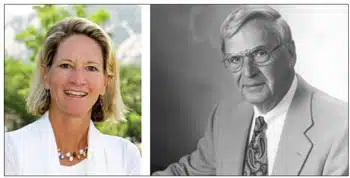
Becky Gamble and Dean Callan
When Boulderites think about commercial real estate sales in Boulder, one name often springs to mind first: Callan.
Dean Callan, a pioneer in commercial real estate brokerage who died in 2012, founded Dean Callan & Co. in 1963, and his daughter Becky Gamble has since taken over and now serves as the company’s chief executive.
“He was the guru of Boulder real estate,” Stephen Tebo, owner and founder of Tebo Development Co., said of Callan after his death.
During his long career, Callan served as a mentor to many of the most prominent figures in the Boulder real estate industry who would go on to form their own companies.
The Commercial Brokers of Boulder group honors Callan each year with the Dean Callan Recognition Award, given to a member of the industry who demonstrates exceptional professional service to clients, integrity, community involvement and leadership and mentorship.
Gamble, an accomplished tennis player who was a collegiate All American and a touring professional, has continued her father’s legacy.
Leading Dean Callan & Co., she’s taken the brokerage to new heights and has brought her son Beau Gamble into the company as the third generation of the Callan clan to make a name in the Boulder commercial real estate space.
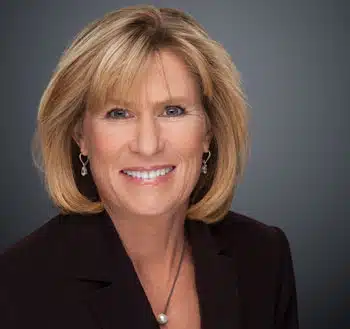
Lynda Gibbons
Navigating the commercial real estate market in a growing, rapidly changing place like Boulder can be a major challenge for companies and landlords alike. Luckily for them, Lynda Gibbons and her team at Gibbons White have been there to help.
For more than 35 years, Gibbons White Inc. has been one of the premier commercial real estate firms in Boulder, providing representation to landlords and tenants during negotiations, acquiring and disposing of property, supervising construction, managing property and assets and providing full build-to-suit development services.
Gibbons, a University of Colorado Boulder graduate who has served as the president of Gibbons White since she founded it in 1986, is renowned for her skill as a negotiator. She is an expert in 1031 transactions and has been used as a court-appointed receiver.
Gibbons White has a portfolio that includes several notable commercial properties in Boulder, including Foothills Medical Building at Boulder Community Hospital and 1033 Walnut Street.
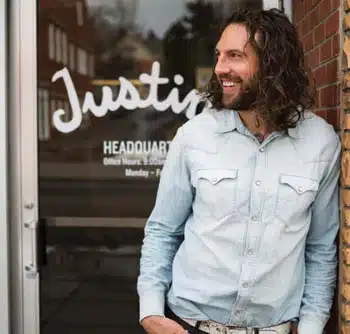
Justin Gold
Boulder has been a natural and organic food mecca for decades, and over the last couple, Justin’s Nut Butter LLC founder and CEO Justin Gold has emerged on the industry’s standard bearers.
Gold, winner of the 2012 Esprit Entrepreneur of the Year award from the Boulder Chamber, began selling his nut butters, made from ingredients from his home kitchen, at the Boulder Farmers Market.
As the products grew in popularity, he sought resources from the University of Colorado Leeds School of business and developed a business plan.
Within a couple of years, Justin’s products were on the shelves at local Whole Foods. Sales spiked and distribution widened.
By 2016, revenues were in the millions and Gold led the company through its $286 million sale to Hormel Foods Corp.
Gold, in 2019, told BizWest that he “didn’t build the company just so I could sell it. I built the company so I could do something special.” He praised Hormel for keeping true to its promise to “let Justin’s keep being Justin’s,” keep it in Boulder and help it innovate and expand.
Gold is active in Justin’s support of Broomfield nonprofit group Conscious Alliance, which harnesses the voices of musicians and artists to raise awareness and funds for food-accessibility projects, particularly in South Dakota’s Pine Ridge Indian Reservation.
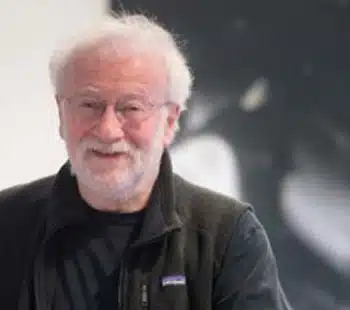
Larry Gold
Boulder has become one of the nation’s premier biotechnology hubs, and Larry Gold is one of the reasons why.
Gold, a University of Colorado biology professor since 1970, is the founder of SomaLogic Inc. (Nasdaq: SLGC), a roughly 22-year-old company that develops platforms to read thousands of proteins in a patient’s blood or urine sample that may signal illnesses or future health conditions and suggest potential treatments via machine learning; and the founder of NeXstar Pharmaceuticals Inc., an infectious-disease-treatment discovery company that merged with Gilead Sciences Inc. in 1999.
SomaLogic went public last year in a merger with a special purpose acquisition company. As a result of the deal, SomaLogic got a cash infusion of about $630 million.
Gold, a member of American Academy of Arts and Sciences and the National Academy of Sciences, is a past recipient of CU’s Distinguished Lectureship Award, the National Institutes of Health Merit Award, the Career Development Award, the Lifetime Achievement Award from the Colorado Biosciences Association, and the Chiron Prize for Biotechnology.
He is the founder and the namesake of the Gold Lab at CU where researchers use technology and bioscience to improve health-care outcomes.

Scott Green and Bhavna Chhabra
Believe it or not, there was a time when Google was not in Boulder, a time before the tech giant had invested hundreds of millions of dollars, taken up hundreds of thousands of square feet of office space and employed thousands of people.
And Google in Boulder would not be what it is today without Scott Green and Bhavna Chhabra. Green was a veteran of @Last, the company that Google acquired in 2006 as its first foray into the market.
Green became Google Boulder’s first site lead, helping it expand from that initial office to nearly 1,500 employees across multiple locations.
When Green left his role in 2019, Chhabra stepped in to continue Google Boulder’s expansion. Under Chhabra, a graduate of the University of Colorado Boulder, the company invested in another massive office campus with plans to double its workforce.
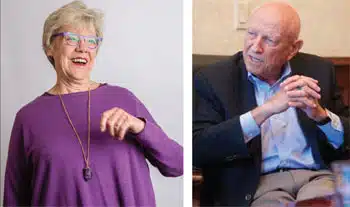
Josie Heath and Rollie Heath
BOULDER — They’re the classic power couple in their public lives, which tended to dominate the Democratic Party and, in turn, Boulder County for multiple decades.
Rollie Heath, legally known as Stratton Rollins Heath, graduated from the University of Wisconsin at Madison, where he received his degree in business administration and also his law degree.
He worked at multiple businesses, most notably as senior vice president at Johns Manville Corp. from 1973-1990.
He was elected to the Colorado Legislature and served in the Senate from 2009-2017 and as majority leader from 2013-2015.
He founded ProgressNow, a progressive advocacy organization. He taught a course at the University of Colorado Leeds School of Business called “Humanizing the Negotiating Process.”
He’s now a partner in NorthStone Group and also serves as a management consultant.
Meanwhile, Josie Heath, also a graduate of Wisconsin, served in both public and private life but has always been an advocate for arts and culture, children, civil and human rights, economic empowerment, and the environment.
She was a Boulder County commissioner from March 1982 until March 1990, when she launched a campaign — the first of two — for the U.S. Senate.
She served a teaching fellowship in the Institute of Politics at Harvard University, is past president of Jurismonitor, also past president of the Community Foundation of Boulder County. She volunteers with Mental Health Partners of Boulder County and serves as a commissioner on the Colorado State Land Board.
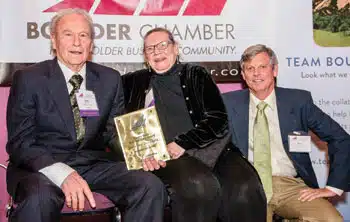
Dave and Dee Hight, who became partners in McGuckin Hardware in Boulder more than 50 years ago and grew it into an iconic store, receive the Franny Reich Business Hero lifetime achievement award at the Boulder Chamber’s annual Celebration of Leadership in 2014. At right is son Barry Hight
Hight family, McGuckin Hardware
BOULDER — Of all the things that fit the definition of “iconic” in Boulder, one, McGuckin Hardware and the Hight family, would have almost universal agreement from those who know the community.
Generations of Boulder residents and those from a wide area of the state of Colorado have come to know the hardware superstore as the place to find almost everything for anything worth doing.
Bill McGuckin opened the store in 1955, but it would be his son-in-law Dave Hight who would take it to not just the next level but, arguably, the ultimate level of functional utility for those seeking a special fastener, hard-to-find gadget or whatyoucallit.
Hight joined the firm in 1960 and became a partner. Bill died in 1966.
The store, now in its third generation of ownership, employs about 250 people who work more than 60,000 square feet of aisle after aisle displaying more than 200,000 items.
Dave Hight died Jan. 18, 2021, at the age of 91 and was succeeded by his son, Barry.
“When we say we’re proud to be family owned and operated, we really mean it,” the company said on its website after Dave’s death. “This store was built on a dream and the call to serve a community. McGuckin Hardware continues to stand today through Dave’s innovative approach to doing business and the family of green vests he built.”
BizWest reported in 2021 that the store never moved more than a block from its present location at 2525 Arapahoe Ave.
Boulder Chamber president John Tayer commented on the McGuckin and Hight influence: “We now live in a challenging retail environment where brick and mortar stores are dealing with heavy competition from online shopping. But the number one defense to that is creating a shopping experience — Dave Hight understood that from the very beginning. Dave and McGuckin created a shopping experience that’s become a magnet for our community.”
Part of the store’s success lies in the fact that it’s not simply a hardware store. It’s a community center, “a place where you come and connect with the local community, your friends and neighbors. We all see it as a place where you’re welcome and you are valued,” Tayer said.
Dave and his wife Dee Hight were recipients of the Boulder Chamber Lifetime Achievement Award in 2014,

R. David Hoover
For more than 40 years, R. David Hoover helped Ball Corp. grow into one of the largest and most diversified companies in the Boulder region.
The native of Straughn, Indiana received his bachelor’s degree from Depauw University and his master’s of business administration from Indiana University.
He joined Ball in 1970 as an assistant to the treasurer and worked his way up a variety of corporate development and finance positions. In 1980, he became vice president of finance and administration for the company’s agricultural division. In 1985, he took the same position in the aerospace group.
Hoover joined Ball’s board of directors in 1996, became president in 2000, and was named CEO in 2001. When Hoover retired as an active employee in 2010, he’d grown Ball sales from $3.66 billion to $7.35 billion. Ball stock provided more than a 500% return to shareholders during that time.
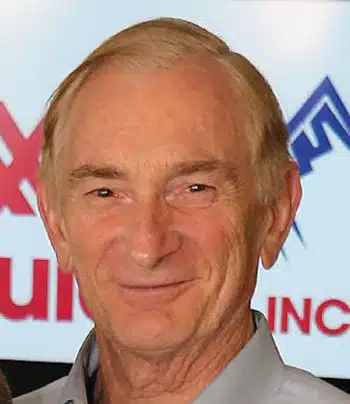
Tom Kalinski
Young real estate agents carve their own niche in the Boulder Valley, but when it comes to institutional knowledge, Tom Kalinski is the oracle.
The Re/Max of Boulder office he established in 1977 has been the highest-producing single real-estate agency in Boulder County for more than four decades, and more than a half dozen times has been the highest-producing Re/Max office in the nation.
In 2015, for instance, he sold a record $1.1 billion in real estate – the same year he was inducted into the Boulder County Business Hall of Fame.
Kalinski now co-owns the agency along with his son, Jay, who also is broker-owner of a sister company, Re/Max Elevate, which was founded in 2019 in Louisville.
In July, the sister offices were named Outstanding Re/Max Brokerage of the Year by global real estate company Re/Max International for setting a combined record-setting $1.8 billion in sales and ongoing leadership performance in 2021. The firms stood out among almost 9,000 offices and more than 140,000 agents across more than 110 countries and territories that make up Re/Max International, with more closed transaction sides per U.S. agent than all other national, full-service real estate companies.
Kalinski has shared his acumen and advice as a frequent BizWest columnist, and also supports more than 20 local nonprofit organizations. Re/Max of Boulder was named a “Miracle Office” by Children’s Miracle Network for supporting Children’s Hospital Colorado through donations from the closing of each home sale. From 2017 through 2021, Re/Max Boulder and Re/Max Elevate donated nearly $100,000 to the hospital.
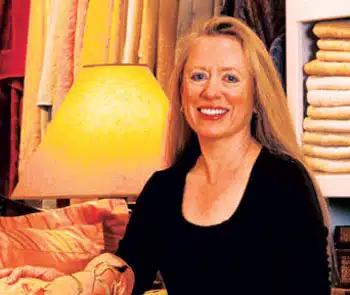
Doris Houghland
There’s a reason that Peppercorn, at 1225 Pearl St. in downtown Boulder, is known as “the Smithsonian of cookstores,” and that reason is Doris Houghland.
Doris and her friend, Barbara David, opened the store in 1977, as a cooking school, with plans to sell kitchen products to support the classes. But they soon shifted their focus to retail, with occasional cooking classes. Houghland eventually bought out David
Over the years, Peppercorn has become a destination for tourists and local alike, with shoppers able to find home accessories from designers all over the world, including small gadgets, cookbooks, formal dinnerware, gourmet appliances, china, crystal, bath linens, soaps, toiletries and more.
“People always ask what I’ve done to make the store successful,” Houghland told the Boulder County Business Report in 2003. “I just always look to the future. I’m basically pretty calm — not a worrier — so I tend to not dwell on problems. If you spend time worrying now, what are you going to do the next time? I just deal with things rather than wasting time moaning about them.”
She credited common sense with many of her decisions over the years.
“I’m always working with a lot of givens. Something happens, and you have to do something,” she said. “I think I was born with a lot of common sense — a sixth sense. I’ve never felt any decisions were 50/50 — that they could go this way or that.”
Houghland was honored with an Esprit Entrepreneur award from the Boulder Chamber in 2003.
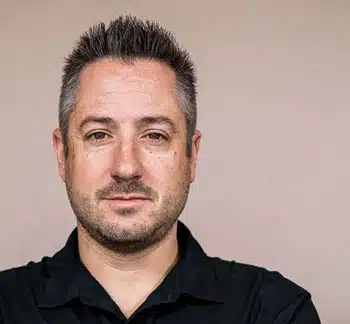
Brandon Knudsen
Brandon and Camrin Knudsen never intended to own a coffee shop, much less a growing chain with more than 60 locations in 12 states. As students at Southern Oregon University, he wanted to be a teacher and she wanted to be a nurse. But when Camrin started earning as much as $100 in tips during an average morning shift at a java joint, the couple decided it might be a better idea to open a coffee shop of their own.
They finally looked in Colorado and found one to buy in Thornton with the help of a loan from Camrin’s family, but Hava Java only brought in about $200 in business on a typical day, so the Knudsens partnered with their coffee roaster to open Gizzi’s Coffee, a cafe in downtown Longmont, and sold Hava Java. The partnership didn’t last, and when the Knudsens’ roaster decided to go his own way and keep the Gizzi’s name, they turned to Tommy and Tim Thwaites, who had just started Coda Coffee. The brothers offered to be the Knudsens’ new roaster, spent $1,700 to buy a G for the Longmont’s shop’s sign, and changed the name to Ziggi’s.
The new partnership thrived, and in 2010 they bought a second location with a double-sided drive-through, added more stores as the years went by, and launched a franchise program in 2016. Although Ziggi’s specialized in drive-through kiosks, it opened a combination sit-down cafe and drive-through in Loveland in 2019. There’s also a cafe and drive-through in Mead, where the Knudsens opened a new corporate headquarters in late 2021.
The company gives back to local schools, individuals, various nonprofits and organizations, but its core mission continues to be making sure a visit and a cup of coffee is “the best part of your day.”

Cheryl Liguori
BOULDER — She fell in love with the mountains, an affection deep enough to cause her to leave an exciting job as general manager of the live-music club Wetlands Preserve in New York City and come to Boulder without a job on the hope that she could land a position with the yet-unopened Fox Theatre.
Cheryl Liguori is now the CEO of Z2 Entertainment, a Boulder-based entertainment company that oversees both the Fox and the Boulder Theater. She is also CEO of Fort Collins Entertainment LLC, which operates the Aggie Theatre.
Liguori’s roots run deep in music. After graduating from the State University of New York at Stony Brook, she took positions at advertising agencies. Friends planning to open the Wetlands lured her to help manage the business side of the operation, with responsibility for making the numbers work.
The club, originally envisioned as a dance club using recorded music, found a customer desire for live acts. And that was hugely successful.
She attended the Telluride Music Festival, which began her love affair with the mountains. Charles Hambleton of the rock band The Samples, which played Wetlands, told her about the new Fox Theatre that was under construction in Boulder. She left New York without a job in 1992, interviewed over a pinball game for a job at the Fox and worked her way into the management of the venue. In 2010, the Fox and Boulder Theater merged operations under Z2 Entertainment, and she has served as CEO of both entities.
Z2 has developed into one of the premier music booking companies in the country. In addition to booking the Fox, Boulder Theater and Aggie, Z2 also books other venues including Chautauqua Auditorium in Boulder, The Riverwalk in Breckenridge, Strings Music Pavilion in Steamboat Springs, and 10 Mile Music in Frisco.
Ligouri serves as chair of the University Hill Commercial Area Management Commission. She has served on the advisory board for the Boulder Visitors and Convention Bureau and with Z2 provides support to numerous non-profits.
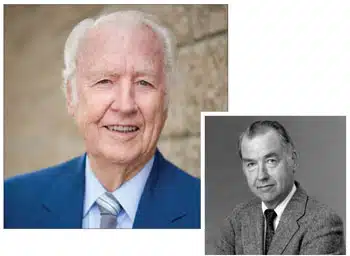
R.C. ‘Merc’ Mercure
R.C. “Merc” Mercure Jr., who died at the age of 90 in February, was a technology entrepreneur who helped found Ball Brothers Research Corp., which later became Ball Aerospace & Technologies Corp.
A University of Colorado Boulder graduate, physics Ph.D. recipient and revolutionizer of CU’s process for commercializing research, Mercure was one of the godfathers of Boulder’s world-class technology and venture-capital ecosystems, as well as civic leader.
Mercure, a father of two daughters and Berthoud native, was the recipient of numerous awards as a local luminary in the business community and was inducted in 2002 into the Boulder County Business Hall of Fame.
In addition to Ball Aerospace, Mercure founded numerous Boulder-based companies, including Colorado Venture Management, which saw major successes investing in bioscience and energy-technology companies, and CDM Optics Inc., which revolutionized the digital imaging industry with technology spun out of CU.
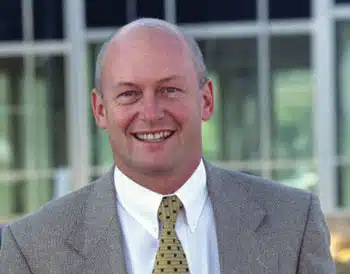
Jeff Nading
FREDERICK — A company born in Longmont and now located in Frederick has made its mark throughout Northern Colorado and metro Denver. It’s led by its chairman and CEO, Jeff Nading.
Known as GTC — Golden Triangle Construction LLC is its official name — is now an employee-owned company. It’s been among the fastest growing companies in the region, as noted in BizWest’s Mercury 100 rankings.
Nading, a member of the coveted Boulder County Business Hall of Fame, came to Colorado from Des Moines, Iowa-based construction firm Taylor Ball to start a Boulder office in the mid-1980s. The Iowa State graduate also came to Colorado armed with a degree in construction engineering. “I knew what it would take and what type of capitalization it would require,” he said. “And the timing was right. In the late 1980s there was nothing going on in the construction industry. Then we had seven, eight years of good growth.”
Nading and the company rode that wave to expand into large commercial projects that include both governmental and private developments. Among the developments was the Lehman Printing Center, which prints this newspaper.
Nading is a hands-on executive who leads project teams and gets involved in preconstruction services and estimating.
Among the company’s more visible work: River Run Elementary, a $6 million elementary school in Brighton, and Farrand Hall on the University of Colorado at Boulder campus.
“We really work from Colorado Springs to Fort Collins now, with a lot of our work in the Highlands Ranch area,” Nading said.
Now, Nading has steered the company into ownership by its employees. “We are excited about this important development in our business,” he told BizWest. “ESOP companies have higher growth rates and better employee retention than other forms of ownership. Becoming an employee-owned company ensures that GTC will remain an independent, locally operated company. The values that have allowed us to prosper for 45 years will continue unchanged.”
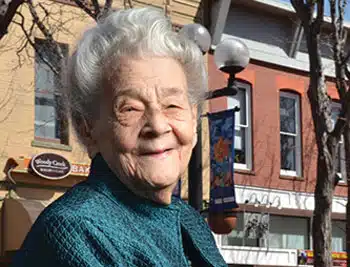
Virginia W. Patterson
BOULDER — The mere mention of Virginia Patterson’s name evokes an image of a woman of high character and indomitable spirit. She earned her spot among the icons of the Boulder Valley through hard work and attention to the details that made Boulder the community it is today.
She came to Boulder in 1942 as a freshman journalism major at the University of Colorado, becoming the editor of the student newspaper and head of several other student organizations.
After graduating, she moved to New York as a guest editor at Mademoiselle magazine. She returned in 1947 and got a job selling advertising for the Daily Camera newspaper. Later, she became a writer and editor for CU’s community service publication. It was there that she met her husband, Alexander Balfour Patterson Jr., who was the first Episcopal chaplain at CU. They had three children.
She later went to work for the Western Interstate Commission for Higher Education, which provided education across state lines, sharing resources and students. And in the 1960s, she served as board member or president of the Boulder Valley School District off and on for 14 years.
In the late 1970s, “My husband wanted a toy shop because he liked to paint toy soldiers, and I wanted a dress shop because I liked pretty things,” Patterson is quoted as saying in a BizWest profile of her. “We settled on a bookstore, because we both like to read.”
The Printed Page bookstore opened in 1977, and it eventually moved to the Pearl Street Mall, which had just been redeveloped as a pedestrian shopping street. In the midst, Patterson got involved with downtown Boulder’s numerous management groups.
“My particular interest was to make downtown a lively and safe place where people could shop and dine and also bring their children,” she said.
Patterson is a founding member of both the Downtown Boulder Association and Downtown Boulder Inc., the latter of which made her a lifetime board member. She was elected to the Boulder County Business Hall of Fame in 1995.
In 2001, she closed The Printed Page, and she died Oct. 20, 2018, at the age of 93.

Ken and Susan Pratt
Motorists entering Longmont on Colorado Highway 119, either from Boulder to the southwest or from Interstate 25 to the east, end up on Ken Pratt Boulevard. The street’s name is appropriate, given the role Pratt and his wife, Susan, played as driving forces behind Longmont’s growth.
A year after Ken Pratt died at age 53 on March 30, 1995, the city renamed Florida Avenue for him, honoring his contributions to the community through real-estate sales and development, as well as his $310,000 gift toward Longmont United Hospital’s Hope Cancer Center.
The first members of the Pratt family arrived in the St. Vrain Valley in 1857, and in 1912 Marion E. Pratt opened The Pratt Agency as a residential real estate development firm. He eventually passed on the business to his son Harold, who in turn passed it on to his son Ken; by then it was Northern Colorado’s largest independent real estate agency. From Fox Hill to Longmont Estates, Ken Pratt oversaw the development of nearly 2,000 homes and nearly 2 million square feet of commercial property in Longmont, including the former Plaza Event Center.
Ken Pratt was a founder of the Longmont Area Economic Council, now the Longmont Economic Development Partnership, and traveled to Japan in 1986 with Colorado Gov. Roy Romer to encourage investment in Longmont. In return, Japan’s emperor and empress visited Longmont in 1994, staying with Ken and Susan Pratt.
After Ken’s death, Susan Pratt, alone at the helm of what had become a $22.5 million construction and property-management company, launched an effort to reinvent its corporate culture by inverting the management triangle, putting her job at the bottom. Led by team members’ suggestions, Pratt Management began to operate as a construction company outside the Pratt holdings.

Dave and Dana Query
For Dave and Dana Query, the hospitality business is far more than a game of chicken.
Sure, The Post Chicken and Beer is thriving in its locations in the Boulder Valley, Northern Colorado and Denver. But the Querys’ Big Red F Restaurant Group also runs the West End Tavern, Centro Mexican Kitchen, Big Red F Catering and Provisions and the new Velvet Elk bar and music venue in Boulder, as well as six Jax Fish House locations.
A Boulder native, Dave Query trained at the Culinary Institute of America, then worked in kitchens around the United States and France before coming home to be part owner of the LickSkillet Cafe in Gold Hill in 1989. The Querys’ Big Red F, founded in 1994, now includes 17 restaurants.
When COVID-19 restrictions shut down many eateries, the Querys adapted by opening five “ghost kitchens” – to-go restaurants without a dining room – in their existing establishments. In the pandemic’s aftermath, the Querys shuttered Zolo Grill in Boulder but developed a tip-sharing model which has led to their lowest-paid Colorado employee making $22 an hour. They also mentor aspiring entrepreneurs as part of the Restaurant-Up program in Denver.
Dana Faulk Query, elected in January to the National Restaurant Association board, worked in marketing for the eTown radio broadcast in 2008 and 2009, and founded a Boulder-based restaurant marketing company.
When they opened Jax in Boulder in 1994, Dave Query bought the “F” from a closed Ben Franklin store and put it on the wall, deciding it would stand for “Fun, Family, Fish, and the big red Fs I got in high school.”
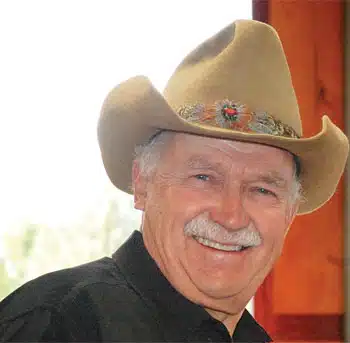
Bill Reynolds
In Boulder, the synonym for “real estate” is “Bill Reynolds.”
Boulder developer Bill Reynolds has been in the community his whole life. He was born and raised on Mapleton Hill, and he graduated from the University of Colorado in 1962 with a bachelor’s degree in business. He began his career selling real estate in Aspen but returned to Boulder and founded The W.W. Reynolds Cos. Inc. in 1966.
In the early days, Reynolds developed shopping centers and office parks, such as the Table Mesa Shopping Center in South Boulder and the Pearl East Business Park along the Boulder Creek. More recently, he partnered with fellow developer Jerry Lee to create One Boulder Plaza in downtown Boulder. The redevelopment features some of Boulder’s highest-class office space and urban-living residences.
In total, Reynolds owns and manages millions of square feet of office, retail, and industrial property and hundreds of apartment units along the Colorado Front Range. Reynolds also helped initiate the University of Colorado’s Real Estate Center with graduate and undergraduate programs and as president of the center.
His volunteer work is also legendary. He served on the Boulder Chamber board, the Boulder YMCA, the board of the Boulder Community Hospital Foundation. He was first president of the CU Real Estate Foundation and was vice chair of the Center of the American West. He has been a member of the Urban Land Institute since 1977.
He served on the boards of multiple private companies, representing the real estate sector and providing general business knowledge.
He and his company have been recognized by NAIOP, the commercial real estate development association, including as developer of the year. He received NAIOP’s Lifetime Achievement President’s Award.
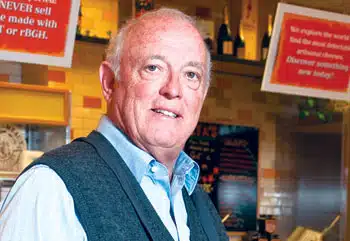
Mark Retzloff
One doesn’t get much more iconic in the natural-foods space than Mark Retzloff.
He helped found or manage a wave of natural-foods companies, including Eden Foods, Rainbow Grocery, Alfalfa’s Market (in multiple incarnations), Horizon Organic Dairy, Aurora Organic Dairy and Greenmont Capital Partners.
He’s also led companies such as Rudi’s Organic Bakery, and served on many boards, both for private companies and trade organizations.
He currently serves as CEO of Climate Foods, a Boulder-based regenerative organic company focused on bringing carbon positive, native perennial grains to market.
He mentors many aspiring entrepreneurs in the natural and organic space, and actively encourages the sector to adopt environmentally friendly practices.
He chaired the Organic Food Alliance, which helped pass the Organic Food Production Act in 1990.
Retzloff received the Boulder Chamber’s Esprit Entrepreneur Lifetime Achievement Award in 2010. He was inducted into the Boulder County Business Hall of Fame in 2013, and his nominator, Sonja Tuitele, described him at the time as “a true pioneer in the global natural and organic products industry and lends his deep experience starting and growing companies to many sectors of the Boulder community — business, nonprofit and the university.”
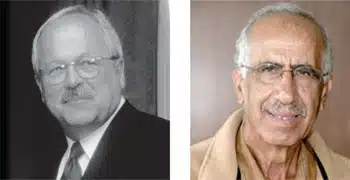
Juan Rodriguez, Jesse Aweida, Thomas Kavanagh and Zoltan Herger
IBM Corp. co-workers Juan Rodriguez, Jesse Aweida, Thomas Kavanagh and Zoltan Herger spotted a market opportunity that helped make Colorado a powerhouse in computer data storage.
As founders of Storage Technology Corp. in 1969, the four built a company that, through the 1970s, sold more tape drives than IBM. But extensive spending on new products, such as a home computer that never made it to market, prompted the company to file for Chapter 11 bankruptcy protection in 1984.
The founders left the company around that time to launch their own companies, but the legacy of StorageTek would endure. The company eventually was sold to Sun Microsystems Inc. for $4.1 billion in 2005, and Sun itself was acquired by Oracle Corp. for more than $7 billion in a deal completed in 2010.
Rodriguez also formed Exabyte Corp. in 1985 before leaving that company in 1993 and forming Ecrix Corp. in 1996. The two merged in 2001 before Exabyte Corp. was acquired by Tandberg Data Corp. in 2006 for $28 million.
Talented employees of large companies who launch their own entrepreneurial ventures has proved a frequent occurrence in the Boulder Valley, with StorageTek a prime and early example. The University of Colorado’s Deming Center for Entrepreneurship once estimated that StorageTek had directly or indirectly spawned the creation of 38 companies in Colorado.
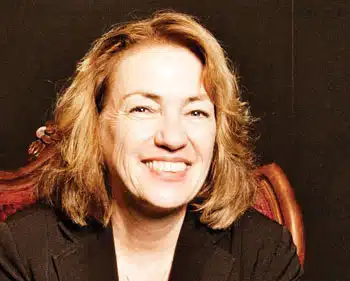
Lucy Sanders
Lucy Sanders has spent decades furthering innovative technologies along the Colorado Front Range, as well as working to increase representation of women in the technology sector.
Sanders is the co-founder and CEO of the National Center for Women & Information Technology in Boulder and also serves on the Council of Founders & Friends at the ATLAS Institute at the University of Colorado Boulder.
NCWIT represents “the farthest-reaching network of change leaders focused on advancing innovation by correcting underrepresentation in computing,” according to the organization’s website.
Sanders has worked extensively in research and development and executive positions at AT&T Bell Labs, Lucent Bell Labs and Avaya Labs for more than 20 years, where she specialized in multimedia communication and customer-relationship management. In 1996, Sanders received the Bell Labs Fellow Award, and she has six patents in the communications technology area.
In 2004, Sanders was awarded the Distinguished Alumni Award from the Department of Engineering at CU. In 2007, she was inducted into the Women in Technology International Hall of Fame, and she received CU’s George Norlin Distinguished Service Award in 2011.
In 2016, she received the Bob Newman Lifetime Achievement Award from the Colorado Technology Association
She has served as conference and program chairwoman for the Grace Hopper Celebration of Women in Computing and the Information Technology Research and Development Ecosystem Commission for the National Academies. She currently serves as a trustee with the Colorado School of Mines.
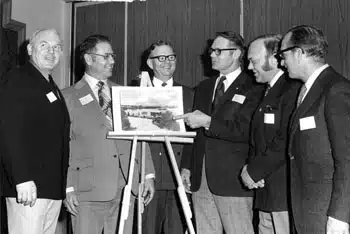
Harold Short (third from right), president of the Flatiron Sand and Gravel Co., explaining reclamation of a gravel pit into a recreational lake to visitors, some from Scandinavia, 17 February 1972. Courtesy Carnegie Library for Local History
Harold Short
Harold Short was inducted into the first class of the Boulder County Business Hall of Fame in 1993, one of only two then-living inductees to inaugurate the initial class.
From before that time to his death in 2007, Short left an indelible legacy on Boulder County’s economy, including the construction and development sectors.
Short was born on a ranch near Thermopolis, Wyoming, beginning at an early age a variety of entrepreneurial endeavors, including selling vegetables grown on the family ranch. He also designed and constructed a portable hamburger cart from which he sold hamburgers, and sold caramel corn at a local theater before joining the U.S. Army, serving in World War II.
Short eventually went to work for Kiewit Sons Co. in Denver, managing many construction projects, which provided extensive knowledge of the construction sector.
Seeking a business opportunity that would allow him to settle in one place versus moving repeatedly, Short partnered with James G. Milne Jr., with Milne Ready Mix Concrete becoming the founding company with which Short was able to build Flatiron Cos., providing concrete, sand and gravel, bridge construction, highway construction, and asphalt paving.
One lasting legacy of Short’s endeavors has been in the reclamation of gravel pits. Flatiron Park in Boulder is one example of reclamation efforts, according to Short’s 2007 obituary.
Short served on many boards of directors for nonprofit organizations and for-profit entities.
In addition to his induction into the Boulder County Business Hall of Fame, Short received the Esprit Entrepreneur Lifetime Achievement Award from the Boulder Chamber, the Service Above Self Award from Boulder Rotary and the Distinguished Citizen award from the Boy Scouts.

Mo Siegel
The origins of Mo Siegel and Celestial Seasonings teas have become an indelible part of Boulder’s colorful and quirky lore.
Before visitors to the tea company’s headquarters on Sleepytime Drive in Gunbarrel take the factory tour that includes the memorable, sinus-clearing Mint Room, they see a video that tells much of the hippie-themed tale most longtime Boulderites know by heart – how Siegel, a pharmacist’s son living in Fourmile Canyon in the late 1960s, decided to try to sell as loose tea the wild herbs he and some friends had been picking in the foothills.
The rest is history. He founded Celestial Seasonings in 1970 at age 20 with $500 of seed capital, bolstered its hippie image by writing many of the words of wisdom on the original tea packaging, and for decades was its president and chairman, building the brand into the largest producer of specialty teas in North America and distributing them globally. Arguably, his company’s pioneering spirit laid the foundation for the reputation as a natural-foods mecca that Boulder enjoys today.
The teas’ fans howled that Siegel had gone a bit too corporate and tarnished the company’s hippie aura when he sold it to Kraft Foods in 1984, but when Philip Morris Tobacco Co. acquired Kraft in 1988, Siegel bought Celestial Seasonings back, returned it to its roots, took it public in 1993 and then in 2000 merged with natural-foods manufacturer Hain to become Hain Celestial, the largest provider of natural foods in North America.
Now owner of Capital Peaks Investment, Siegel has served on the board of Boulder Community Health and those of numerous public and private companies. He also founded the Red Zinger Bicycle Classic race, which would become the Coors Classic.
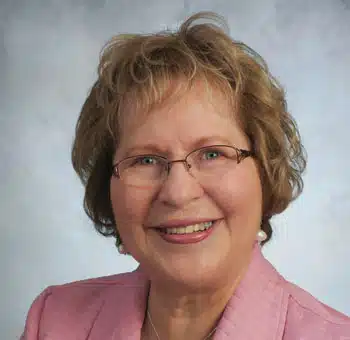
Leona Stoecker
Leona Stoecker’s leadership continues to make a difference in Longmont.
Serving as mayor from 1993 to 2001, she was a driving force behind the establishment of a Front Range Community College campus in Longmont and — long before today’s super-fast NextLight – a fiber-optic network for businesses and residents. After her time as mayor ended, she waged an unsuccessful campaign for a seat in the state Legislature in 2002.
Her extensive resume includes being a founder of the local League of Women Voters chapter and service on the Longmont Area Economic Council, Longmont United Hospital’s board of directors, a local Rotary chapter, the Imagine! Foundation, the Longmont Water Board and the Boulder County Planning Commission.
Stoecker grew up on a farm outside Bazine, Kansas, and attended Kansas State University. After her husband left the military, he took a job at the Denver Air Route Traffic Control Center at the old Stapleton International Airport in Denver, and when that center was moved to Longmont in 1962, the couple moved as well. At that time, Longmont had a population of about 12,000, and Stoecker immediately immersed herself in the community, becoming a founding member of the local League of Women Voters chapter.
She was heavily involved in fundraising for the Longmont Symphony Orchestra and community art projects, and co-chaired “Geese Galore” in 2002, the community art project that brought large geese sculptures to a variety of locations around town.
In June 2017, Stoecker and other Rotary members helped raise funds for several volunteers from the community to go to Kiev, Ukraine, to work in specialized settings for children with disabilities.
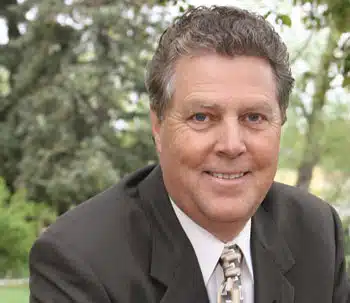
Stephen Tebo
Stephen Tebo came to Boulder from Kansas in 1968 at the age of 24 with a passion for collecting coins. He turned that passion into his first business, Tebo Coin.
When Tebo needed to order more display cases for his coin shop but realized there was no distributor for them in Colorado, he founded Tebo Store Fixtures to supply that need.
When he ran out of space for his businesses, Tebo built his first building to house them, renting out the rest of the space.
Thus began the real estate career that has seen Tebo become one of the premier commercial property owners in Boulder. Over the past 40 years, Tebo has been one of the city’s most successful and significant developers, with properties in premier locations such as the Pearl Street Mall and the 28th Street corridor.
Tebo has also contributed significantly to charitable causes around Boulder, most notably to Boulder Community Hospital’s cancer center.
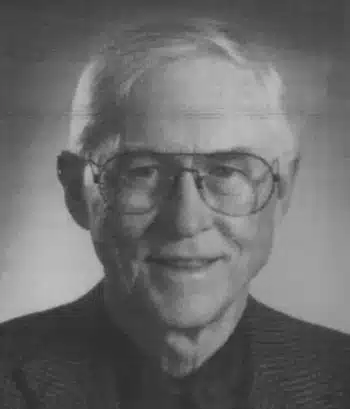
Trumble family
Ed Trumble and his family have left an indelible signature on the Boulder County economy, as well as its culture.
As co-founder of Leanin’ Tree Inc., a greeting-card company that combines quality Western art with well-crafted verses, Trumble — who died in 2018 — and his family have been major supporters of the arts, as well as providing a livelihood for about 150 employees.
Family-owned since the company’s inception, the Trumbles changed the company structure in 2021 to make it employee-owned through its sale to an Employee Stock Ownership Plan.
Ed Trumble was born in 1924 in Nebraska and joined the U.S. Army, serving in the European theater.
He eventually moved to Denver, starting a greeting-card business with Robert Lorenz. The two eventually split the business in 1964, with Trumble naming his company Leanin’ Tree. The company eventually grew to become one of the nation’s leading greeting-card companies, with all cards created, produced and shipped from the company’s Boulder headquarters.
Trumble eventually turned over management of the company to his children, including son Tom Trumble.
“It has always been a goal of the Trumble family for Leanin’ Tree to continue forever,” Tom Trumble said in announcing the ESOP. “To best ensure that happens, we have formed the Leanin’ Tree ESOP. The company’s employees are now the new owners of Leanin’ Tree. We never had even a moment of doubt that this was the best possible transition for employees, the Trumbles, and also for customers, representatives, artists and suppliers. It is a win-win for all. It’s a good feeling when something feels so right.”
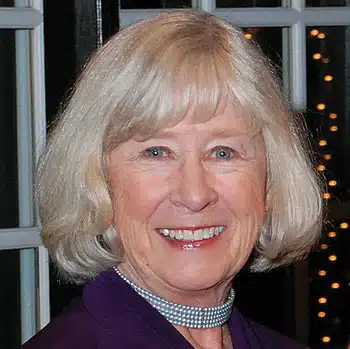
Vicki Trumbo
How do you help the business community in a small town grow, thrive and attract new companies while still being friendly to local businesses and retaining a small-town character?
Ask Vicki Trumbo.
For more than 30 years, Trumbo has served as the executive director for the Lafayette Chamber of Commerce. She is the only person to have held that title. During that time, she has been an invaluable aid to Lafayette companies large and small.
The town has drawn huge employers such as SCL Health Good Samaritan Medical Center and Medtronic Inc., and its historic downtown has exploded with an influx of new and expanding local restaurants, coffee shops, and retail businesses: East Simpson Coffee Co., The Read Queen, Anspach’s Jewelry, Teocalli Cocina and more make up a part of the nearly 400 members of the Lafayette Chamber.
For more than three decades, Trumbo has helped them thrive.
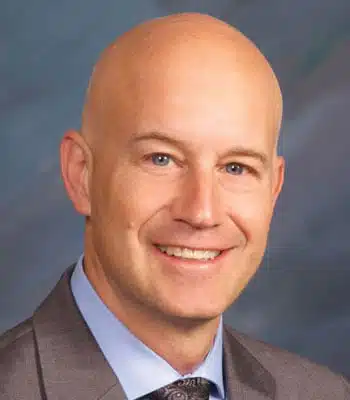
Dr. Robert Vissers
Dr. Robert Vissers was named chief operating officer at Boulder Community Health, a nonprofit, independent health-care system, in 2014 and then was named chief executive in 2015 – just in time to navigate a major transition.
The century-old health system’s main medical center, on North Broadway in Boulder, had long been considered its flagship hospital, but it was time to move eastward with the population – both of patients and staff – and Vissers had to steer BCH through the headwinds.
Vissers has overseen many enhancements at BCH, including the new Pathways Pathways Partial Hospitalization Program and Pathways Intensive Outpatient Program that use mindfulness-based techniques to address mental-health issues.
He currently teaches in the University of Colorado’s Health Care Executive MBA program. He’s a member of the boards of the Colorado Hospital Association, Boulder County Business Hall of Fame and Bridge House.
Before joining BCH’s board as president and chief executive, he held several leadership roles at Legacy Health, a nonprofit health system based in Portland, Oregon, and was chief medical officer at Emanuel Medical Center there.
He also was president and CEO of Northwest Acute Care Specialists, one of the largest independent physician groups in the Pacific Northwest. Before post-graduate work at Oregon Health and Science University and Portland State University, he earned his medical degree at London, Ontario’s Western University and served a residency at Vancouver General Hospital through the University of British Columbia.
He also has been an attending physician at Brigham and Women’s Hospital in Boston through Harvard University’s medical school and residency director of emergency medicine at the University of North Carolina at Chapel Hill.
He’s a popular speaker at medical conferences and is considered a national expert in emergency airway management, quality and patient flow.
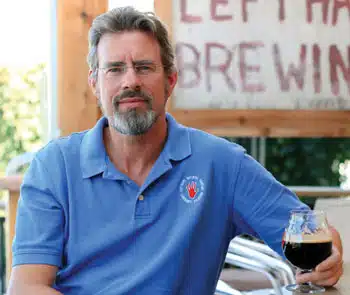
Eric Wallace
When Eric Wallace co-founded Left Hand Brewing Co. in Longmont nearly 30 years ago, he did so to make the kind of beer he wanted to drink.
All that time later, Left Hand still does that. It has also grown into one of the premier craft breweries in the nation. It helped pioneer the science of brewing with liquid nitrogen, and its Nitro Milk Stout remains one of the most popular and prominent examples of that technique. Left Hand’s lineup also includes pilsners, India Pale Ales, ambers, tripels, sours and more.
In 2022, the company earned Brewery of the Year honors at the Great American Brewing Festival.
Wallace has also been vocal about corporate social responsibility and the need for businesses to make their communities into better places. He is a leading advocate for housing affordability in Boulder County.
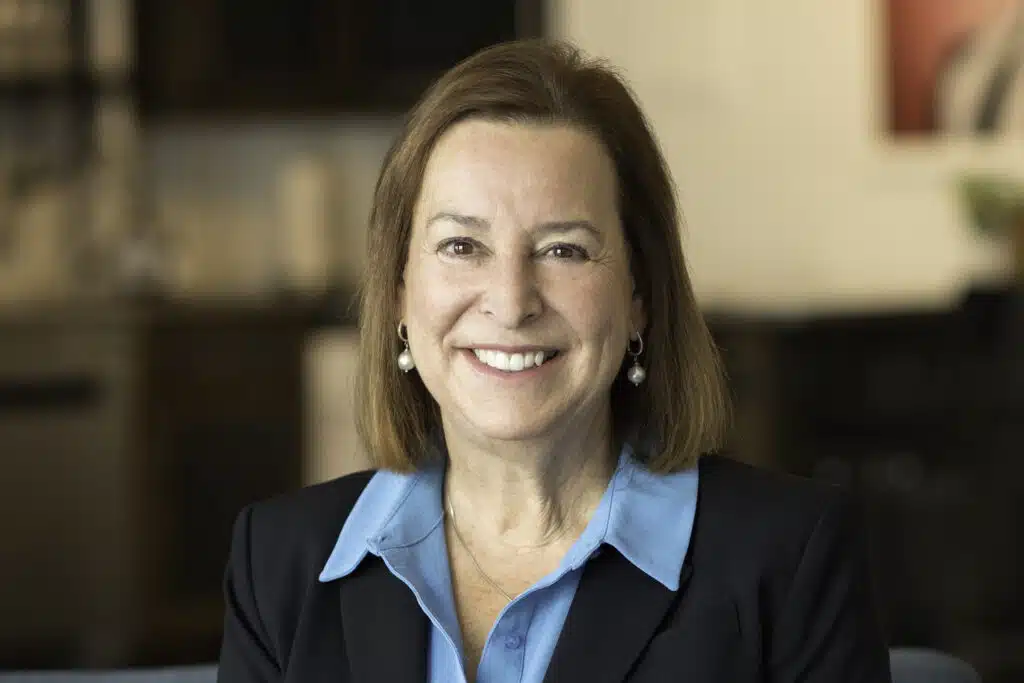
Often called the “The Queen of Legal Weed,” Wana Brands CEO and founder Nancy Whiteman is not only one of Colorado’s earliest above-board weed entrepreneurs, but also one of its most successful.
Wana, which sells its products in about a half-dozen states where recreational marijuana is legal, was founded in 2010 and now ranks as North America’s top cannabis edibles company by market share.
The company — which, over the past year or so, has launched two new product lines, Wana Optimals Fit for weight loss and fitness, and Fast Asleep for nighttime use — was formed after Whiteman, then a marketing consultant, began experimenting with cannabis-infused beverages.
With regulation and quality control lagging behind demand, Wana made a name for itself by focusing on consistency, an important attribute for psychoactive products.
The strategy paid off, and last year Wana was acquired by Canopy Growth Corp. (TSX: WEED, Nasdaq: CGC), an Ontario, Canada-based cannabis brand umbrella company, for nearly $300 million.
This year, Whiteman, who this year was recognized as a winner of the Boulder Chamber’s Women Who Light the Community award, established the Wana Brands Foundation, a $50 million charitable organization that focuses on research and education, food security, shelter, safety, mental health, sustainability, connection, and social justice.
View related stories:
Click here to view the 40th Anniversary supplement.
‘Turnpike’ helps define how economy has changed

George Berg and Giovanni Ruscitti
George Berg and Giovanni Ruscitti, along with Rick Greenleaf and David Hill, founded Berg Hill Greenleaf Ruscitti LLP in 2001 and have spent the last two decades building their law firm into one of the Boulder area’s largest private practices.
With more than three dozen lawyers and offices in Boulder; Denver; Cheyenne; San Diego and Irvine, California, offers legal services from criminal representation to advice on…

